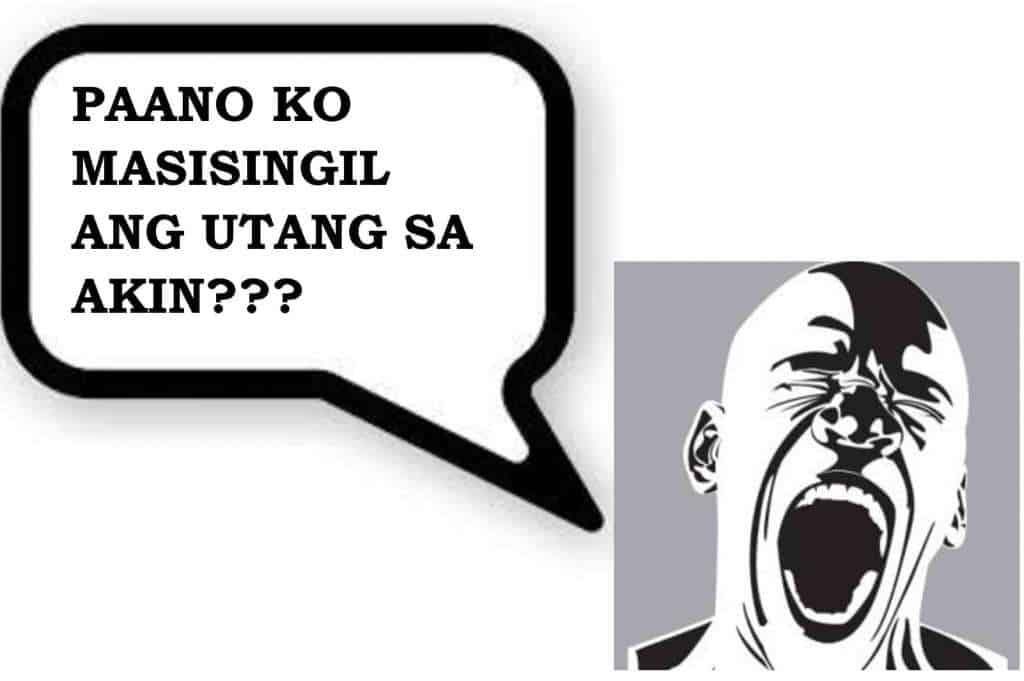Do you want to collect from the people who borrowed money from you?
Where payment of such money claim is the principal relief sought, filing a collection suit is proper. A collection suit is a civil action and, in the Philippines, a civil action is defined as one by which a party sues another for the enforcement or protection of a right, or the prevention or redress of a wrong.
A civil action may either be ordinary or special. A collection suit is an ordinary civil action, which is governed by the Rules of Civil Procedure.
Who are the parties in a collection suit?
Only natural or juridical persons, or entities authorized by law may be parties in a collection suit. The parties are designated as plaintiff or defendant. Plaintiff refers to the claiming party, the counter-claimant, the cross-claimant, or the third (fourth, etc.) — party plaintiff. Defendant refers to the original defending party, the defendant in a counter-claim, the cross-defendant, or the third (fourth, etc.) — party defendant.
Every action must be prosecuted or defended in the name of the real party in interest. A real party in interest is the party who stands to be benefited or injured by the judgment in the suit, or the party entitled to the avails of the suit.
Husband and wife shall sue or be sued jointly, except as provided by law. A minor or a person alleged to be incompetent, may sue or be sued with the assistance of his father, mother, guardian, or if he has none, a guardian ad litem.
How to commence a collection suit?
A collection suit is commenced by the filing of the Complaint for Sum of Money in court. A complaint is the pleading alleging the plaintiff’s cause or causes of action. The names and residences of the plaintiff and defendant must be stated in the complaint.
Where can you file a collection suit?
A civil action for collection of a sum of money may be commenced and tried where the plaintiff or any of the principal plaintiffs resides, or where the defendant or any of the principal defendants resides, or in the case of a non-resident defendant where he may be found, at the election of the plaintiff.
Which court has jurisdiction over a collection suit?
The Metropolitan Trial Courts, Municipal Trial Courts in Cities, Municipal Trial Courts and Municipal Circuit Trial Courts shall have exclusive jurisdiction over payment of money where the value of the claim does not exceed One Million Pesos (P1,000, 000.00), exclusive of damages, interest, attorney’s fees, litigation expenses. In this case, the claim shall be prosecuted under the Revised Rules of Procedure for Small Claims Cases. (As amended by Administrative Mater No. 08-8-7-SC.)
The Metropolitan Trial Courts, Municipal Trial Courts in Cities, Municipal Trial Courts and Municipal Circuit Trial Courts shall have exclusive jurisdiction over payment of money where the value of the claim exceeds One Million Pesos (P1,000,000.00) but does NOT exceed Two Million Pesos (P2,000, 000.00), exclusive of damages, interest, attorney’s fees, litigation expenses. In this case, the collection suit is considered as an ordinary civil action which shall be prosecuted under the Revised Rules of Summary Procedure.
If it exceeds the jurisdictional amount of Two Million Pesos (P2,000,000.00), the Regional Trial Court shall have exclusive jurisdiction.
How much court fees or Docket Fees are paid in a collection suit?
Filing and docketing of the complaint are not separate but are complementary. It is not simply the filing of the complaint or appropriate initiatory pleading, but the payment of the prescribed docket fee that vests a trial court with jurisdiction over the subject matter or nature of the action.
The purpose of docket fees is to take care of court expenses in the handling of cases in terms of costs of supplies, use of equipment, salaries and benefits.
An action to collect a sum of money that is within jurisdiction of the MTC but with accessory prayer for damages beyond MTC jurisdiction, the damages, interest, attorneys’ fees, litigation expenses are to be excluded in determining jurisdiction but docket fees are still to be collected.
In general terms, roughly two percent (2%) of the total amount claimed will constitute the docket fees and the equivalent amount will be assessed by the court upon filing the case.
Who has the duty to prove the allegations in the complaint?
It is basic that whoever alleges a fact has the burden of proving it because a mere allegation is not evidence. In civil cases, the burden of proof is on the party who would be defeated if no evidence is given on either side. In collection suit, the plaintiff or the one who has a right to collect money from the defendant shall have the burden of proving the unpaid debt.
What is the quantum of evidence needed in a collection suit?
Section 1, Rule 133 of the Rules of Court mandates that in civil cases, the party having the burden of proof must establish his case by a preponderance of evidence. In the case of Raymundo v. Lunaria, G.R. No. 171036, 17 October 2008, the Supreme Court defined preponderance of evidence as that evidence as a whole adduced by one side is superior to that of the other. It refers to the weight, credit and value of the aggregate evidence on either side and is usually considered to be synonymous with the term greater weight of evidence or greater weight of the credible evidence. It is evidence which is more convincing to the court as worthy of belief than that which is offered in opposition thereto.
About Nicolas and De Vega Law Offices
If you need assistance in collection of sums of money or civil or other criminal law-related issues, we can help you. Nicolas and de Vega Law Offices is a full-service law firm in the Philippines. You may visit us at the 16th Flr., Suite 1607 AIC Burgundy Empire Tower, ADB Ave., Ortigas Center, 1605 Pasig City, Metro Manila, Philippines. You may also call us at +632 84706126, +632 84706130, +632 84016392 or e-mail us at [email protected]. Visit our website www.ndvlaw.com.









